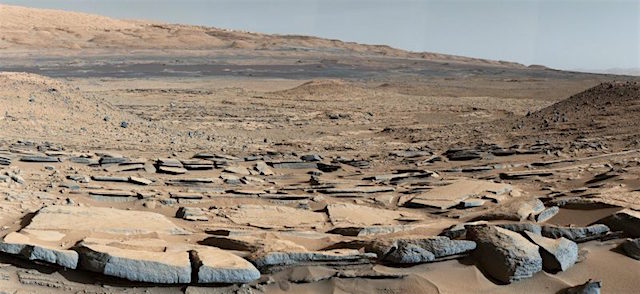 As the Mars InSight lander begins listening to the interior of Mars, some scientists are already proposing that some marsquakes could be signals of groundwater beneath the frozen surface of the Red Planet.
As the Mars InSight lander begins listening to the interior of Mars, some scientists are already proposing that some marsquakes could be signals of groundwater beneath the frozen surface of the Red Planet.
The idea, proposed by Michael Manga, a planetary scientist at the University of California at Berkeley, and his colleagues, is that Mars could be experiencing quakes a lot like those being felt in Oklahoma and Texas due to wastewater injections from fracking.
On Earth, water from fracking is injected deep into the ground where it increases the pressure in the pores — tiny spaces between the grains that make up the ground. That pressure can loosen up faults and cause them to slip and send vibrations — the shaking of an earthquake — far and wide.
On Mars, it might also be about the pore pressure, said Manga, who is the lead author of a paper describing their hypothesis in the AGU journal Geophysical Research Letters. But instead of fracking, Manga proposes that the wintry temperatures of Mars’s surface might penetrate downward into liquid groundwater, freezing the top layers of groundwater and compressing the still-liquid groundwater below. That pressurized groundwater could be loosening faults on Mars and causing just the sorts of shallow marsquakes that have already been detected by the Insight lander, he said. [More at links]








